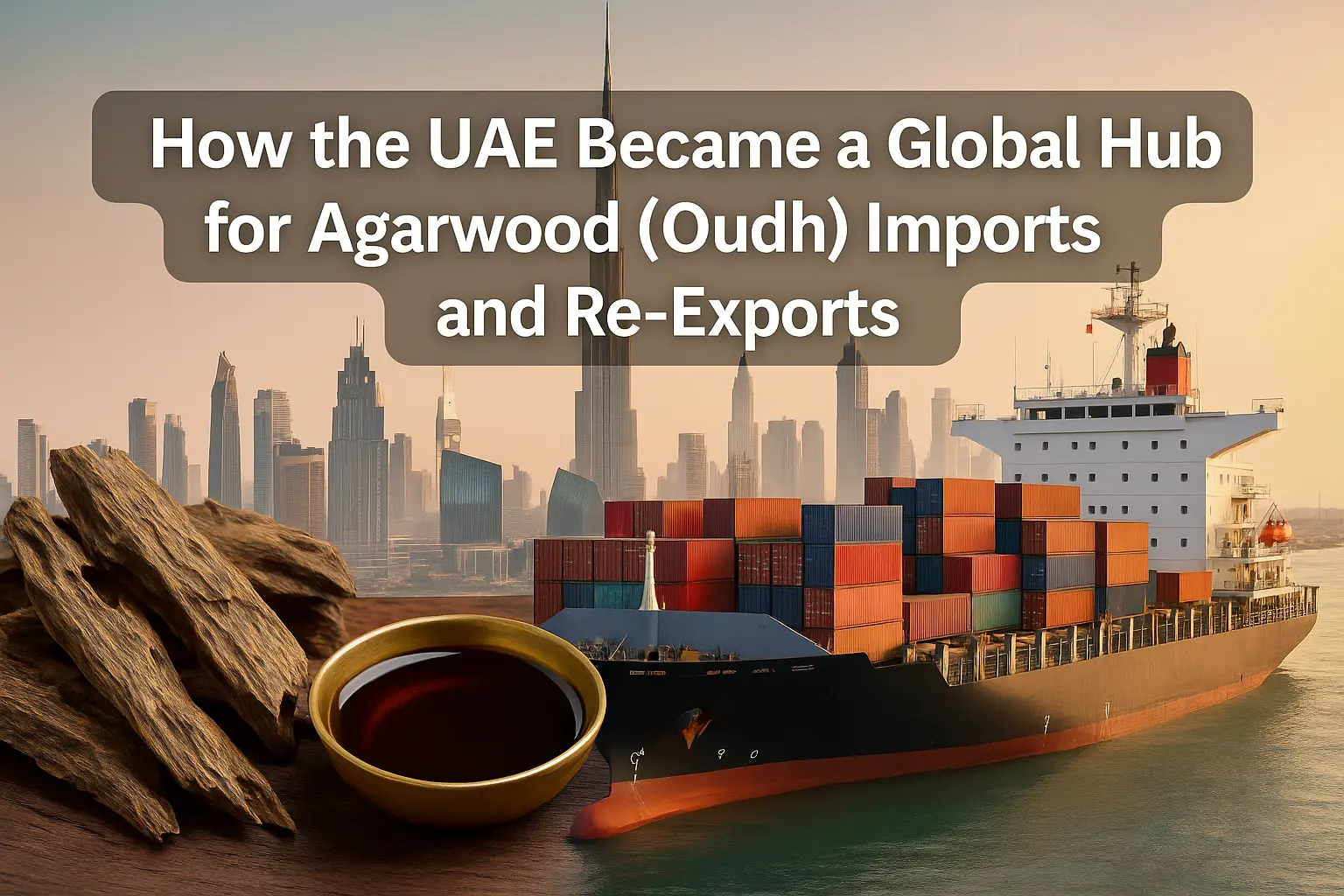

Discover how Dubai’s ancient love for oudh evolved into a thriving re-export trade—uniting global supply with regional tradition and luxury.
Agarwood, or oudh, has long been intertwined with Arabian culture. Traditionally used for perfuming clothes, religious rituals, and hospitality, its value as a cultural treasure led to significant demand in the UAE. Over time, this cultural appreciation evolved into a booming trade. Dubai, with its world-class logistics and geographic advantage, emerged as the bridge between Southeast Asian agarwood producers and Middle Eastern consumers. This deep-rooted cultural reverence created the foundation for a flourishing market.
Between 2004 and 2007, UAE’s imports of agarwood chips skyrocketed by over 300%—from 56 tonnes to more than 162 tonnes. Singapore, a key re-exporter, funneled agarwood from Indonesia and Malaysia directly into UAE markets. The UAE didn’t just consume—it re-exported large volumes to Saudi Arabia, Kuwait, and Qatar. Dubai International Airport and Jebel Ali Port played crucial roles in the logistics chain, with agarwood arriving as air cargo, through courier services, and sometimes personal luggage.
Traders in the UAE source oudh through trusted suppliers from Southeast Asia or trade hubs like Singapore and Bangkok. Many large UAE-based perfume companies have dedicated sourcing teams, warehouse facilities, and even branches in supplier countries. Once in Dubai, products are graded, repackaged, and sold both locally and internationally. Some shops cater to wholesale buyers from Saudi Arabia who frequently purchase in bulk and transport goods via road or courier to avoid customs complications.
The UAE’s position as a trade hub brought regulatory responsibilities. The country operates under CITES guidelines, with customs and quarantine officers monitoring imports and re-exports. Despite holding a reservation on some agarwood species, the UAE still maintains trade records and submits data to international bodies. However, challenges persist, such as unregistered traders, undeclared goods in luggage, and counterfeit products like “BMW” (black magic wood). The government continues to strengthen border controls, enforce registration, and advocate for sustainable sourcing.
Due to its strong logistics infrastructure, central location, cultural demand, and established trade relationships, the UAE has become the primary gateway for agarwood entering and leaving the Middle East.
Re-exporting refers to importing agarwood from one country (e.g., Malaysia) into the UAE, then exporting it to another country (e.g., Saudi Arabia) without major processing. The UAE serves as a middle link in this chain.
Singapore is a major re-export hub for agarwood sourced from Indonesia, Malaysia, and Cambodia. Many UAE traders purchase from Singapore-based merchants due to their large stock availability and established supply chains.
Yes, but it is strictly regulated under CITES. Traders must register with the UAE’s environmental authorities and obtain necessary permits for both import and re-export operations.